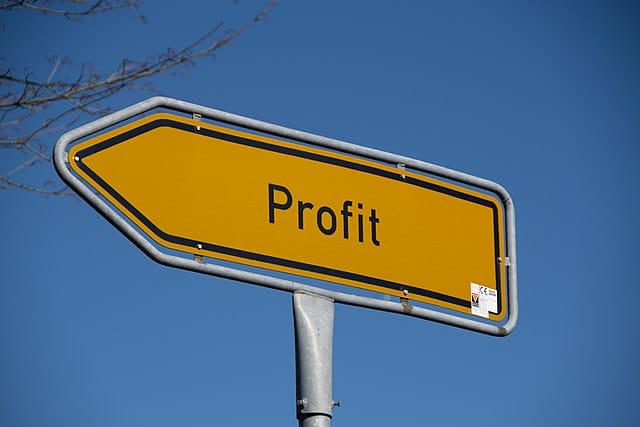The majority of big insurers’ health plan revenues are subsidized by American taxpayers
See how your tax dollars are making health insurers’ CEOs very (very) rich.
Wendell Potter Now
4 hr ago
A lot of people on Capitol Hill were surprised to learn that, as I wrote earlier, UnitedHealth Group, the nation’s largest health insurer, got 72% of its health plan revenue last year from taxpayers, not from private-paying customers. As you can imagine, that is not a talking point the company’s many lobbyists are likely to use with members of Congress and staffers.
But that percentage, which has been inching up for years, will only get higher. That’s because the federal government has been so generous in doling out your money to private insurers that UnitedHealth and the other big for-profit insurers have focused far more on increasing their Medicare Advantage enrollment than their private health plan enrollment.
Wendell Potter NOW is a reader-supported publication. To receive new posts and support my work, consider becoming a free or paid subscriber.
Insurers long ago figured out how to bilk taxpayers out of tens of billions of dollars a year by gaming a part of the Medicare Advantage program that was put in place to keep insurers from “cherry-picking” the healthiest seniors and shunning–or dropping–the sickest (a practice called “lemon-dropping).
As I wrote last month, over the past 10 years, UnitedHealth’s Medicare Advantage enrollment increased by about 4.4 million, from 2.6 million to almost 7 million. During that same time frame, its commercial (private paying) enrollment increased by just 70,000. One reason is that employers increasingly have found that offering coverage to their workers is prohibitively expensive. Fewer than half of the nation’s employers now offer subsidized coverage to their employees and dependents.
I was asked recently if the other big insurers are getting as much of their health plan revenue from taxpayers as UnitedHealth. The answer, as you might suspect, is yes. In fact, four of the big seven for-profit insurers are getting even more from Uncle Sam as a percentage of health plan revenue than UnitedHealth.
When I looked at all seven of those companies’ recent earnings reports and did a little simple math, I found that the percentage ranged from 42% for Cigna to 91% for Humana. Here’s the breakdown:
If anything, those percentages are understated. Many of those companies also got billions in subsidies from the federal government to help cover the cost or premiums for the 14.5 million people enrolled in ACA (Obamacare) marketplace plans. The premiums for most ACA plans are so high that most people who get their coverage through the ACA marketplaces couldn’t afford their coverage without the subsidies. This year, 89% of marketplace enrollees qualified for subsidies in the form of advance premium tax credits (APTCs).
As millions of Americans lost both their jobs and their employer-sponsored coverage during the pandemic, Congress made subsidies available temporarily to more individuals and families under the $1.9 trillion American Rescue Plan Act of 2021. Those additional subsidies would have expired at the end of this election year if Congress hadn’t extended them last month for another three years as part of the Inflation Reduction Act. The price tag for that extension will amount to around $25 billion a year, according to previous Congressional Budget Office estimates. Keep in mind that that money will go straight to insurers.
The extension was such good news for the insurance industry that some of the big companies, including Cigna and UnitedHealth, announced this week that they will sell government-subsidized ACA health plans in more markets next year. That is an about-face for them and other companies that had dropped out of most ACA marketplaces in recent years.
Despite those rich subsidies, millions of people who get their coverage through the ACA marketplaces nevertheless are underinsured, which means that for all practical purposes they are functionally uninsured. That’s because of how much they have to pay out of their own pockets before their coverage kicks in. This year, families with ACA coverage can be on the hook for up to $14,700 in out of pocket expenses. That amount increases every year.
Still, Medicare Advantage is hands down the industry’s biggest cash cow these days. Wall Street is thrilled that so much of our taxes is going to a handful of big New York Stock Exchange companies, and those insurers’ boards of directors are paying their CEOs generously for continuing to raid the Medicare Trust Fund. (Insurers are paid 4 percent more than it would cost to cover similar people in traditional Medicare, according to MedPAC).
In fact, the CEOs of two of the smallest companies, Centene and Molina, along with CVS/Aetna, took home the most money last year. All three of them, as you’ll see below, were paid more than $20 million in 2021.
(Note: Michael Niedorff, Centene’s founder, died in April 2022.)
Cigna, where I used to work, has struggled to keep up with its peers in Medicare Advantage enrollment and revenue, but not from a lack of trying and pushing the envelope of what is legal.
Two weeks ago, the Department of Justice intervened in a whistleblower/False Claims Act lawsuit against Cigna that alleges the company “exaggerated the illnesses of its Medicare members to obtain higher payments from the federal government.”
Keep in mind that the DOJ intervenes in whistleblower cases less than 25% of the time, according to a Modern Healthcare report. That said, the government joined lawsuits alleging similar Medicare Advantage fraud against UnitedHealth and Elevance/Anthem in 2017 and 2020, respectively.
Meanwhile, many members of Congress have been so thoroughly influenced by smooth-talking and campaign-cash peddling lobbyists that every year hundreds of them sign industry-generated letters extolling the benefits of Medicare Advantage. You’ll be surprised to see how many Democrats, including several who are members of the Congressional Progressive Caucus, have signed that letter and taken campaign cash from Big Insurance.
More on that soon. Stay tuned.
